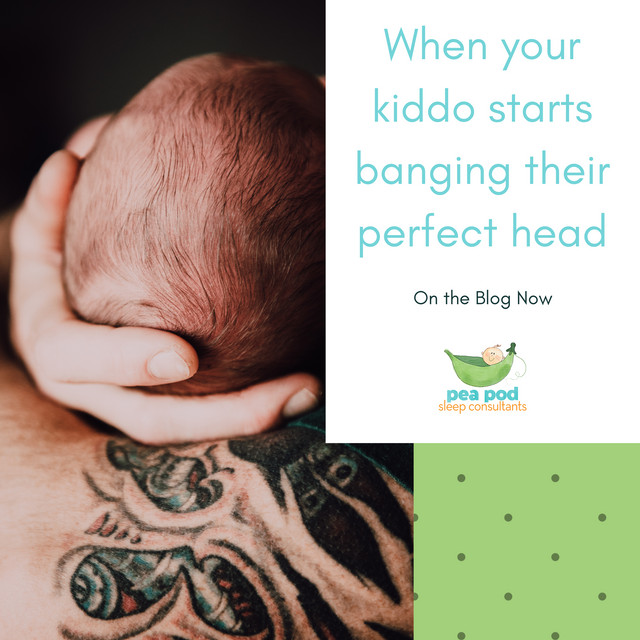
Thump, thump, thump. You check the monitor. You see your baby bumping his or her head against the crib. Yikes! It’s understandably upsetting and worrisome. Here’s the good news; this baby head-banging, where babies or young children repeatedly hit their head against a crib, mattress, wall or pillow, looks painful, but in a healthy child, it is a form of self-comfort.
Head-banging is self-soothing and actually helps a child fall asleep. Some kids bump, bump, bump while they’re teething or when they have an ear infection. While head-banging can also be a way that young children release tension and express frustration or anger, under most circumstances, there is nothing to worry about.
How long will my baby head-banging last?
Babies may start banging their head by six months of age and continue through toddlerhood or their preschool years. Most children stop before kindergarten. Your child’s episode may last up to 15 minutes until they usually nod off to sleep.
What does baby head-banging look like?
Some babies lay face down, while others will sit and rock their body back and forth while banging their head. A child may exhibit head banging during night wakings, in addition to bedtime and naptime. Boys are more likely to be head-bangers than girls.
When do I need to worry?
While about 20% of healthy children will be head bangers, baby head-banging is something that you should bring up to your child’s pediatrician. Occasionally, head banging is a sign of a developmental, neurological or psychological concern.
A couple safety considerations
Parents of babies under a year of age may want to cushion the “blow” with crib bumper pads. Bumper pads, blankets or soft objects in the crib should be avoided during the first year of life because they increase a child’s risk for SIDS. While parents frequently worry that their kids will get a head injury while head banging, head injuries are uncommon. While you might notice an occasional bruise, pain prevents kids from hitting their head too hard.
If you’ve got a head banger on your hands, don’t be alarmed but do talk with your child’s pediatrician about it. A little reassurance from your pediatrician will allay any worries that you might have.
